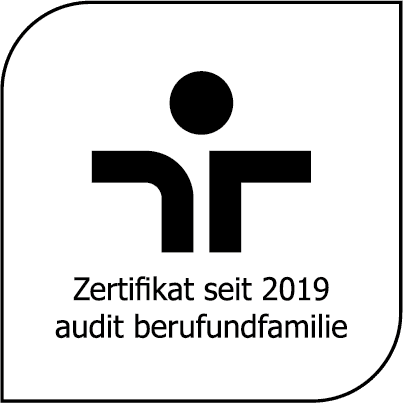Test instruments sorted
Contact person for the Open Test Archive
Gülay Karadere (Dipl.-Psych.)
Research Associate
guek@leibniz-psychology.org
FraGen
Fragebogen zur Generativität
Short abstract
The three-part instrument (1 FraGen-L, 2 FraGen-E, 3 FraGen-G) was developed to measure generativity. According to Erikson (1950), generativity is defined as a concern to care for future generations. The construction was based on Kotres (1984) four dimensions of generativity (biological, parental, technical and cultural), supplemented by social and ecological generativity. Reliability: Cronbach's alpha of the scales is alpha = .68-.83. The selectivities vary strongly (rit = .28-.74). The scales of FraGen-G and FraGen-E show regression instabilities (interval of 41.3 days on average) between rtt = .60 and rtt = .82. The results of FraGen-L, on the other hand, indicate a lack of stability (test regression instabilities rtt = .04-.54). Validity: Four factors were assumed for FraGen-L and FraGen-G and two factors for FraGen-E which could be empirically confirmed. Low to medium correlations between the scales of the three questionnaires and the LGS between r = .20 and .55 are positive evidence for the convergent validity. Connections with indicators of mental health are assumed. Accordingly, there were positive correlations between generativity and positive health indicators (e.g. well-being) and negative correlations with negative health indicators (e.g. depression).
Leibniz Institute for Psychology (ZPID). (2019). Open Test Archive: FraGen. Fragebogen zur Generativität. Available at: https://www.testarchiv.eu/en/test/9006390
Citation
Schoklitsch, A. & Baumann, U. (2011). FraGen. Fragebogen zur Generativität [Verfahrensdokumentation, Fragebogen zur Generativität im Lebensrückblick (FraGen-L), Fragebogen zur elterlichen Generativität (FraGen-E), Fragebogen zur gegenwärtigen Generativität (FraGen-G) und Auswertungsanleitung für alle drei Versionen]. In Leibniz-Institut für Psychologie (ZPID) (Hrsg.), Open Test Archive. Trier: ZPID.
https://doi.org/10.23668/psycharchives.6504
Short information
Short Name FraGen
English Name Generativity Scales: Gen-life, Gen-current, Gen-parental
Authors Schoklitsch, A., Baumann, U.
Published in Test archive 2011
Copyright/Licence Copyright Autoren; CC-BY-NC-ND 3.0
Language versions deu
Construct Generativity (Erikson, 1950)
Application age 20 years and older
Item number 29 items (FraGen-L) + 19 items (FraGen-E) + 29 items (FraGen-G)
Subscales (1) technical, (2) cultural, (3) social and (4) ecological generativity (FraGen-L and FraGen-G); (1) biological and (2) parental generativity (FraGen-E)
Application Time each 5-10 min.
Interpretation time No information.
Internal consistency: Cronbach's Alpha = .68-.83. Retestreliabilities (interval: average 41.3 days): rtt = .60-.82 (FraGen-G and FraGen-E), rtt = .04-.54 (FraGen-L)
Findings on factorial and convergent validity; Correlations with positive and negative health indicators (e.g. well-being, depressiveness)
None; Reference values
Applications Research
Older versions
Version 1: https://doi.org/10.23668/psycharchives.413
There is no abstract in English available. Short information about the measure can be found under Overview. More can be found on the German pages.
There is no review in English available. Short information about the measure can be found under Overview. More can be found on the German pages.
First published in
Schoklitsch, A. & Baumann, U. (2010). FraGen. Fragebogen zur Generativität. Salzburg: Universität Salzburg, Institut für Psychologie. PSYNDEX Dok.-Nr. 9006390
Feedback form
Feedback on the use of a procedure from the Open Test Archive of the Leibniz Institute for Psychology (ZPID) to the test author(s)
Contact information
Mag. phil. Dr. rer. nat. Angela Schoklitsch, Universität Salzburg, Psychotherapeutin in Ausbildung, Rechte Wienzeile 163/41, A-1050 Wien
Prof. em. Dr. Dr. h.c. Urs Baumann, Universität Salzburg, Institut für Psychologie, Hellbrunner Straße 34, A-5020 Salzburg

 Learn more about us!
Learn more about us! 
